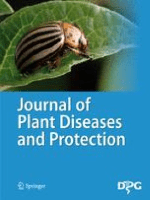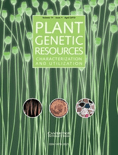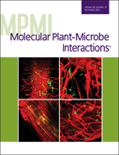
JOURNAL OF GENERAL PLANT PATHOLOGY
metrics 2024
Advancing the Frontiers of Plant Disease Research
Introduction
JOURNAL OF GENERAL PLANT PATHOLOGY, published by SPRINGER JAPAN KK, is a pivotal platform dedicated to the dissemination of high-quality research in the fields of agronomy and crop science, as well as plant pathology. With an ISSN of 1345-2630 and an E-ISSN of 1610-739X, this journal plays a significant role in advancing our understanding of plant diseases and their management, particularly within the context of sustainable agriculture. Currently ranking in the Q3 quartile for both Agronomy and Crop Science as well as Plant Science, it showcases a diverse array of articles that encompass fundamental research, innovative methodologies, and practical applications to address contemporary challenges in these fields. Researchers and professionals seeking to enhance their knowledge and stay abreast of the latest findings will find the JOURNAL OF GENERAL PLANT PATHOLOGY an invaluable resource. Operating without Open Access, it still ensures wide accessibility through institutional subscriptions and comprehensive digital archiving, with a commitment to excellence from its inception in 2001 through its ongoing developments into 2024.
Metrics 2024
 0.33
0.33 1.00
1.00 1.20
1.20 43
43Metrics History
Rank 2024
Scopus
IF (Web Of Science)
JCI (Web Of Science)
Quartile History
Similar Journals

Annual Review of Phytopathology
Illuminating trends in plant science and medicine.Annual Review of Phytopathology, published by ANNUAL REVIEWS, is an esteemed journal that has been at the forefront of the field since its inception in 1973. With a focus on both Plant Science and Medicine, the journal holds a prestigious Q1 ranking in both categories for 2023, reflecting its influence and significance in the academic community. The journal features comprehensive review articles that encapsulate significant advancements and emerging trends in phytopathology, providing valuable insights for researchers, professionals, and students alike. Its rigorous peer-review process ensures the highest quality of publication, making it essential for anyone seeking to stay informed on critical issues affecting plant health and related disciplines. With an impressive Scopus ranking of #10 out of 516 in Agricultural and Biological Sciences, Annual Review of Phytopathology remains a vital resource for the dissemination of cutting-edge knowledge, fostering innovation and collaboration within the field.

Vavilovskii Zhurnal Genetiki i Selektsii
Cultivating Insights for a Sustainable FutureVavilovskii Zhurnal Genetiki i Selektsii, with ISSN 2500-0462 and E-ISSN 2500-3259, is a distinguished open-access journal published by the Russian Academy of Sciences, Institute of Cytology and Genetics. Since transitioning to open access in 2013, the journal has been dedicated to advancing research and discourse in the fields of genetics and selection, particularly within agricultural and biological sciences. With a current ranking of Q2 in Agricultural and Biological Sciences and Q3 in Biochemistry, Genetics and Molecular Biology according to Scopus, it serves as a pivotal platform for researchers, professionals, and students to disseminate their findings and collaborate on innovative ideas. The journal, housed in the vibrant academic environment of Novosibirsk, Russia, publishes a diverse range of articles that contribute to the ongoing evolution of genetic studies and practical applications in agriculture. Its commitment to quality and accessibility ensures it plays an essential role in the global scientific community, fostering knowledge that bridges theoretical research and practical implementation.

Journal of Plant Diseases and Protection
Advancing the Science of Plant HealthThe Journal of Plant Diseases and Protection, published by SPRINGER HEIDELBERG in Germany, is a premier platform for the dissemination of cutting-edge research in the fields of Agronomy, Horticulture, and Plant Science. With its Q2 ranking in multiple categories as of 2023, this journal stands out in the academic landscape, highlighting its strong performance with a notable Scopus rank of 22nd in Horticulture and placing in the top percentile for Agronomy and Plant Science. The journal spans from 2006 to 2024, making it a valuable resource for researchers, professionals, and students seeking to stay abreast of advancements in the understanding of plant diseases and their protection. The Open Access options further enhance its accessibility, fostering a global exchange of knowledge essential for addressing contemporary agricultural challenges.

ARCHIVES OF PHYTOPATHOLOGY AND PLANT PROTECTION
Transforming Challenges into Sustainable Solutions for AgricultureArchives of Phytopathology and Plant Protection, published by Taylor & Francis Ltd, stands as a pivotal platform in the field of agronomy and crop science since its inception in 1974. With an ISSN of 0323-5408 and E-ISSN of 1477-2906, this journal is dedicated to publishing high-quality, peer-reviewed research that addresses contemporary challenges in plant pathology and protection. As a Q3 ranked journal in its category with Scopus Rank #210/406, it serves a vital role in disseminating practical solutions and innovative discoveries to enhance agricultural productivity and sustainability. The journal fosters a rich exchange of ideas among researchers, professionals, and students, empowering them to contribute to the advancement of the agronomy and biological sciences. Despite being traditionally subscription-based, the journal's commitment to comprehensive and rigorous research makes it an essential resource for anyone invested in the future of plant health and agricultural innovation.

CANADIAN JOURNAL OF PLANT SCIENCE
Nurturing Scientific Growth in Plant SciencesCanadian Journal of Plant Science (ISSN: 0008-4220, E-ISSN: 1918-1833) is a prestigious publication dedicated to advancing research in the fields of agronomy, horticulture, and plant science. Published by Canadian Science Publishing, this journal has been a cornerstone in the Canadian and international scientific community since its inception in 1973. With a solid presence in reputable databases, it ranks in the Q3 category for multiple disciplines as of 2023, reflecting its impact and relevance within the agricultural sciences. The journal serves as a vital resource for researchers, professionals, and students, encouraging the dissemination of innovative findings and fostering collaboration across disciplines. Although it is not an open-access journal, subscribers gain exclusive access to a wealth of knowledge, with articles aiming to enhance the understanding of plant systems and contribute to sustainable agricultural practices. The Canadian Journal of Plant Science remains committed to supporting the growth of plant-related research and its practical applications in today's changing environmental landscape.

Egyptian Journal of Botany
Fostering collaboration in the botanical community.Egyptian Journal of Botany is a premier publication in the field of botanical sciences, encompassing agricultural research, plant biology, and ecology. Published by the NATL INFORMATION DOCUMENTATION CENT, ACAD SCIENTIFIC RESEARCH & TECHNOLOGY in Egypt, this journal has made significant strides since its establishment, now recognized within several prestigious Scopus quartiles including Q3 in Agronomy and Crop Science, and Q3 in Ecology, reflecting its impact and relevance in the scientific community. With an aim to disseminate high-quality research and foster innovation in plant sciences, the journal provides a platform for researchers, professionals, and students alike to share vital findings and advancements. Although it currently operates under traditional access, the wealth of knowledge it offers is pivotal for those engaged in ecological preservation, crop improvement, and biotechnological applications. With its comprehensive scope and evolving reputation, the Egyptian Journal of Botany is poised to remain an influential player in the botanical sciences from 2019 to 2024 and beyond.

Plant Genetic Resources-Characterization and Utilization
Exploring Genetic Treasures for Tomorrow's CropsPlant Genetic Resources-Characterization and Utilization, published by Cambridge University Press, is an esteemed journal in the field of plant science, particularly focusing on the genetic resources crucial for agriculture and crop improvement. With an ISSN of 1479-2621 and an E-ISSN of 1479-263X, this journal serves as a vital platform for researchers aiming to advance the understanding of genetic variation and its applications in plant breeding and conservation. The journal boasts an impressive positioning within its categories, achieving Q2 in Agronomy and Crop Science, Q4 in Genetics, and Q3 in Plant Science as of 2023, which reflects its commitment to publishing high-quality research. Although primarily subscription-based, the journal is accessible to institutions and individuals seeking to stay at the forefront of innovations in plant genetic resources. Researchers, professionals, and students alike will find valuable insights into the latest methodologies, findings, and implications for sustainable agriculture and ecosystem management in its pages. As a key resource for advancing knowledge and practical applications in its field, Plant Genetic Resources-Characterization and Utilization continues to significantly contribute to the scientific community and the understanding of plant biodiversity.

Phytopathology Research
Pioneering discoveries in plant pathology and molecular biology.Phytopathology Research, published by SPRINGERNATURE, serves as a vital resource in the rapidly evolving fields of biochemistry, genetics, molecular biology, and plant sciences. Since adopting an open access model in 2019, this journal has fostered an inclusive approach to disseminating cutting-edge research and breakthroughs in plant pathology and related disciplines. With an impressive impact factor in the second quartile for Biochemistry, Genetics and Molecular Biology (miscellaneous) and Plant Science, and a robust standing in the Scopus rankings, it attracts high-quality contributions from researchers around the globe. The journal not only supports the academic community's quest for advanced knowledge but also plays a crucial role in addressing global agricultural challenges through innovative research. Positioned in the United Kingdom and operating with a keen focus on enhancing plant health and resistance, Phytopathology Research continues to be an essential platform for both established and emerging scientists in this vital area of study.

MOLECULAR PLANT-MICROBE INTERACTIONS
Exploring the Intricacies of Plant-Microbe DynamicsMOLECULAR PLANT-MICROBE INTERACTIONS is a premier journal dedicated to the exploration of the complex interactions between plants and microbes, providing a vital platform for researchers in agronomy, crop science, and plant physiology. Published by the American Phytopathological Society, this journal has been serving the academic community since 1988 and continues to be at the forefront of advances in molecular biology and plant-microbe symbiosis, with a notable impact factor reflecting its esteemed position in the field. As a Q1 journal in both Agronomy and Crop Science and Medicine (miscellaneous), and holding a significant ranking in the Scopus categories, it is recognized for publishing high-quality, peer-reviewed research that is essential for understanding and improving agricultural practices. Although it is not an open-access journal, it provides critical insights that facilitate collaborative efforts among researchers, professionals, and students alike. The journal’s objectives focus on enhancing our understanding of plant health, disease resistance, and ecological sustainability, making it a crucial resource for anyone interested in the intricate research landscape of plant-microbe dynamics.

PHYTOPATHOLOGIA MEDITERRANEA
Empowering researchers in the realm of phytopathology.PHYTOPATHOLOGIA MEDITERRANEA is a premier open access journal published by the Mediterranean Phytopathological Union, dedicated to advancing knowledge in the fields of Agronomy, Crop Science, Horticulture, and Plant Science. With its Q1 status in Agronomy and Crop Science and Horticulture and a strong ranking in Plant Science, this journal is recognized for its significant contribution to research, featuring high-quality studies and reviews that address contemporary challenges in plant health and disease management. As an essential resource for researchers, professionals, and students, PHYTOPATHOLOGIA MEDITERRANEA facilitates the dissemination of cutting-edge research and serves as a critical hub for academic discourse in the Mediterranean region and beyond. Since embracing open access in 2014, the journal has further enhanced its visibility and accessibility, providing a valuable platform for innovative ideas and collaborative research in the vital domain of plant pathology. The journal is indexed in Scopus with impressive rankings, including the 20th percentile in Horticulture, which underscores its esteemed position within the academic community, making it an indispensable source for anyone looking to stay abreast of developments in the field.